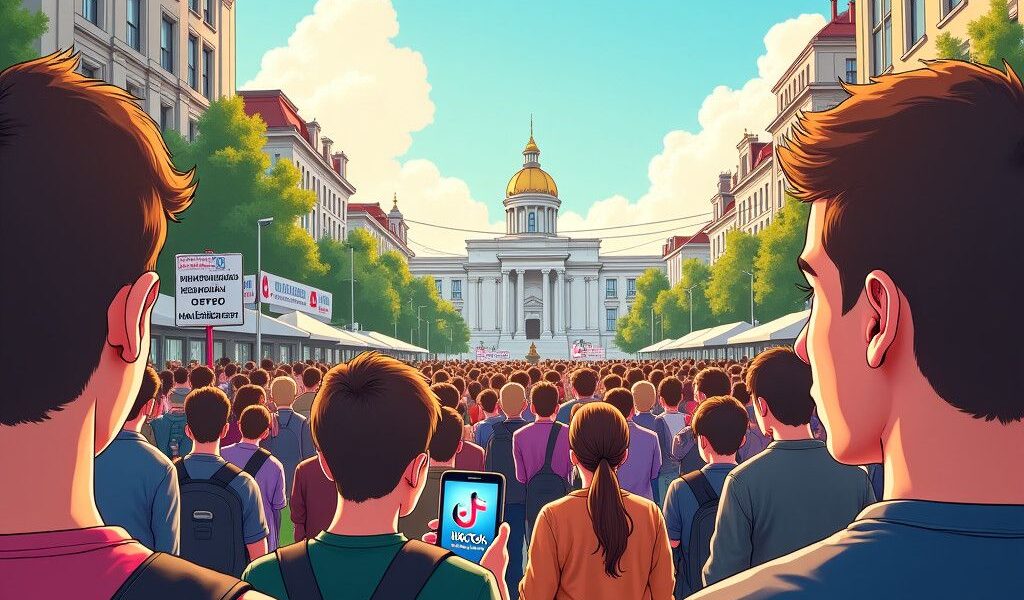Romania Plans TikTok Suspension Over Election Concerns: A Sign of Caution in Digital Regulation
In an unprecedented move, Romanian authorities are poised to suspend TikTok amid concerns regarding its potential influence over the upcoming elections. This decision is a reflection of the broader apprehensions regarding social media platforms and their roles in shaping public opinion and electoral outcomes.
With elections taking place on Sunday, the Romanian government is investigating the potential impact of TikTok on voters. The platform, with its massive user base, particularly among younger demographics, holds significant sway over content consumption and social interaction. Experts have raised alarms about the platform’s algorithms and how they curate content that can either promote or hinder political narratives.
Social media platforms have been under intense scrutiny globally since the 2016 U.S. presidential election. Incidents involving misinformation, foreign interference, and data privacy violations have caused governments to reevaluate the role these channels play in democratic processes. The Romanian case mirrors these global concerns, highlighting a growing movement towards stricter controls and regulations on digital platforms.
The decision to suspend TikTok will likely elicit a mixed response from the public. On one hand, it could protect the electoral process from manipulation through viral misinformation and targeted advertisements. On the other hand, it raises concerns about censorship and the suppression of freedom of expression. Critics argue that such a ban might set a precedent for overreach, limiting open dialogue and access to information, which are core tenets of democracy.
An example of these concerns in action can be seen during various political events worldwide, such as the U.S. Capitol riots in 2021, where social media catalyzed rapid mobilization and spread of misinformation. Closer inspection reveals the influence platforms like TikTok had in disseminating rapid-fire content that could sway the emotions and opinions of many individuals.
Romania’s approach, while seemingly protective, also presents a dilemma regarding the balance between security and freedom. How do countries navigate the challenges posed by new technologies, particularly when they threaten the integrity of democratic processes? Scrutiny of TikTok opens a dialogue not just about the platform itself but about a larger framework for understanding digital regulation.
Romania is not alone in this endeavor. Countries like India have also taken stringent measures against TikTok, emphasizing national security and data protection. This trend indicates a shift where nations prioritize safeguarding democratic processes over the unregulated growth of digital platforms.
As the Romanian government moves forward with its plans, it is essential to consider the implications of such actions. Policymakers must balance the need for regulation with the importance of preserving free expression. Transparent communication with the public about the reasons for such a suspension will be crucial in maintaining trust in governance.
In closing, Romania’s potential suspension of TikTok amid election concerns signifies a critical moment in the intersection of technology and governance. It serves as a reminder that while digital platforms have transformed communication, their influence must be monitored and regulated to protect the values of democracy. The outcome of this situation may set a precedent for how other nations approach similar challenges in the future.








